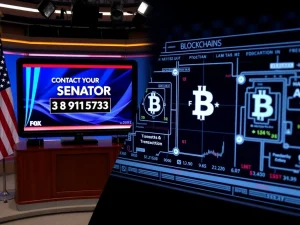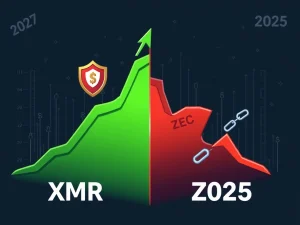Alarming $40M Fine Shocks Jack Dorsey’s Block Over Crypto Compliance Failures

In a stunning turn of events for the crypto world, Jack Dorsey’s Block Inc., the parent company of popular mobile payment service Cash App, has been hit with a hefty $40 million fine. The New York Department of Financial Services (NYDFS) has levied this penalty due to alleged failures in crypto compliance and Anti-Money Laundering (AML) protocols within Cash App. This news has sent ripples through the digital finance sector, raising serious questions about regulatory oversight and the responsibilities of crypto-integrated platforms.
What Led to the $40 Million Block Fine for Crypto Compliance?
The NYDFS investigation, as reported by Bloomberg, unearthed significant shortcomings in Cash App’s operational framework. The core issue revolves around the platform’s alleged violation of consumer protection laws. Regulators determined that Block failed to conduct adequate due diligence on its users and was notably sluggish in reporting suspicious transactions. A critical point of contention was Cash App’s handling of “high-risk” Bitcoin (BTC) transactions, which reportedly lacked sufficient screening and monitoring. These lapses in protocol triggered the substantial Block fine, underscoring the increasing scrutiny on crypto compliance within the financial industry.
Delving Deeper into the AML Failures
At the heart of the NYDFS’s concerns are Cash App’s alleged AML failures. Anti-Money Laundering compliance is a cornerstone of financial regulation, designed to prevent illicit funds from being laundered through financial systems. The NYDFS found that Cash App’s AML program was deficient, leading to:
- Insufficient Customer Due Diligence: Regulators claim Cash App did not adequately verify the identities and backgrounds of its users, a crucial step in preventing money laundering.
- Slow Reporting of Suspicious Activity: The platform was reportedly slow in identifying and reporting transactions that raised red flags, hindering timely intervention and investigation.
- Inadequate Monitoring of High-Risk Transactions: Specifically concerning Bitcoin, the NYDFS determined that Cash App’s systems were not robust enough to effectively monitor and flag potentially illicit “high-risk” BTC transactions.
While Block confirmed the settlement and cooperation with NYDFS to resolve issues related to Cash App’s “past compliance program,” it notably stopped short of admitting any wrongdoing. This stance suggests a desire to move forward swiftly while acknowledging the need for improvements in their regulatory adherence.
Jack Dorsey’s Block Under Regulatory Scrutiny: A Timeline
This $40 million settlement isn’t an isolated incident for Block. It marks a continuation of regulatory pressures faced by the company, particularly in 2024. Key events include:
| Date | Event | Details |
|---|---|---|
| Early 2024 | $80 Million Fines | Block paid $80 million in fines to multiple state regulators for alleged AML program violations, preceding the NYDFS settlement. |
| April 10, 2024 | $40 Million NYDFS Fine | Settlement with NYDFS for AML failures and crypto compliance issues specifically related to Cash App. |
| Since 2023 | Negotiations with NYDFS | Block had been in settlement negotiations with NYDFS, as indicated in SEC filings, signaling ongoing regulatory engagement. |
These events collectively highlight the increasing regulatory scrutiny that companies operating in the crypto space are facing. Even firms led by prominent figures like Jack Dorsey are not immune to stringent oversight.
Despite Regulatory Headwinds, Block Shows Strong Growth
Interestingly, despite these significant regulatory challenges, Block’s financial performance remains robust. In 2024, the company reported:
- Revenue Growth: A 4.5% year-over-year revenue increase, reaching $6.03 billion.
- Earnings Surge: Per-share earnings climbed by an impressive 51% to $0.71.
- Payment Volume Increase: Merchant gross payment volume rose by 10% to $61.95 billion.
- Cash App Growth: Cash App itself generated $1.38 billion in gross profit in the fourth quarter and boasted over 57 million monthly transacting users in early 2024.
However, this positive financial picture is juxtaposed with a significant drop in Block Inc.’s (XYZ) share price, which has fallen over 37% this year, mirroring a broader market downturn. This stock performance indicates that while the underlying business is growing, investor sentiment may be impacted by factors including regulatory concerns and market volatility.
The Broader Implications of Cash App Regulation and Crypto Compliance
The Cash App regulation case serves as a stark reminder of the evolving regulatory landscape for cryptocurrency and related services. Key takeaways include:
- Heightened Regulatory Focus: Regulatory bodies like NYDFS are actively monitoring and enforcing compliance within the crypto sector.
- AML Compliance is Non-Negotiable: Robust AML programs are essential for any platform dealing with cryptocurrencies to avoid penalties and maintain operational integrity.
- Consumer Protection Prioritized: Regulators are placing a strong emphasis on protecting consumers who use crypto platforms, necessitating stringent due diligence and security measures.
- Impact on Stock Prices: Regulatory actions, even if businesses are fundamentally strong, can negatively impact investor confidence and stock valuations in the short to medium term.
Looking Ahead: Navigating the Crypto Regulatory Maze
For companies like Block and others operating in the cryptocurrency space, the path forward requires a proactive and diligent approach to crypto compliance. This includes investing in robust AML programs, prioritizing customer due diligence, and maintaining open communication with regulators. The Jack Dorsey-led company’s experience underscores the critical need for crypto businesses to not only innovate but also to operate within the boundaries of evolving regulatory frameworks. As the crypto industry matures, navigating these regulatory waters effectively will be paramount for sustained growth and mainstream adoption.










